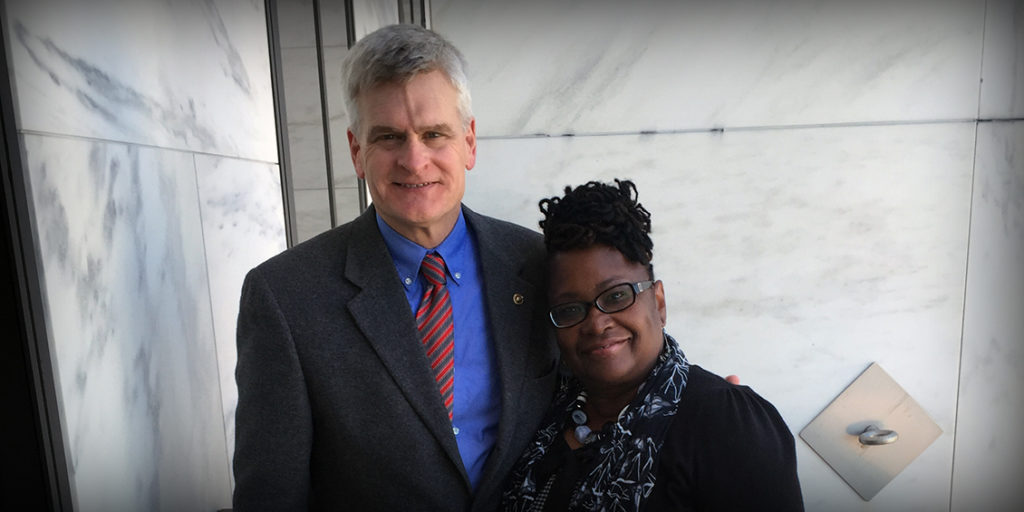Speak Up, Stand Up, Write Up, and Talk Up

My name is Doris Chenier, and I have pemphigus vulgaris. This is my story.
In October 2008, I had surgery. When I woke up, my mouth was full of blisters. I blamed it on an inexperienced anesthesiologist.
Three weeks later, the painful blisters were still there. I went to doctor after doctor trying to get relief. I began to lose weight from not being able to eat. After seeing approximately fifteen doctors and receiving multiple misdiagnoses, I finally learned on January 20, 2009, that I had pemphigus vulgaris (PV). PV has been very difficult for me because the disease is so rare. Most of the doctors had only heard of it in medical school. I turned to the internet and met Marc Yale. He helped guide me to the right doctors and the right treatment. Then when there was an opportunity to be an advocate, Marc suggested that I attend Rare Disease Week in Washington, DC.
My first reaction was FEAR. The walking, my body aching, standing were just a few of my worries. EXCITEMENT was the next emotion. There would be stories that I could relate to and new people to meet, especially Marc Yale. Then I felt PROUD that I would represent Louisiana and get to meet the senators and representatives.
After the first conference, I was TIRED. However, it was very informative and helped to get us organized.
There are over 7,000 rare diseases. We were grouped with people with other rare diseases from our states so to be better able to inform our state representatives and senators about how the diseases has impacted us.
Talking with Senator Bill Cassidy, MD was awesome. He did not know a lot about pemphigus, but his Health Legislative Aide, Pranay Udutha, was very knowledgeable about the disease, the drugs used, and how our immune system works.
Louisiana Senator David Vitter committed to become a co-sponsor of a research bill after Eric Hartman and I discussed how important funding and research was to Louisiana citizens. Our leaders are not aware of what we go through on a daily basis, living with a rare disease. It is our responsibility to make them aware of how they should spend money and do research with us in mind. The only way that can be done is if we talk, educate, and write letters. I believe we made a difference. Senators and representatives are now aware that we will not be SILENT about the issues raised by rare diseases.
Since I’ve returned to my daily struggles of life, I’ve contacted my congresspersons on several occasions to remind them I’m here and that they must address rare disease issues because I am their constituent. I’ve connected with people that will be in my life always. We have a common bond: a Rare Disease. I’ve also sent letters to my local senators and representatives.
When you are asked to attend Rare Disease Week, speak up, stand up, write up, and talk up. Our concerns about living a healthy life without worrying about things such as drugs, being able to work, or a doctor not being informed about pemphigus must be heard.
